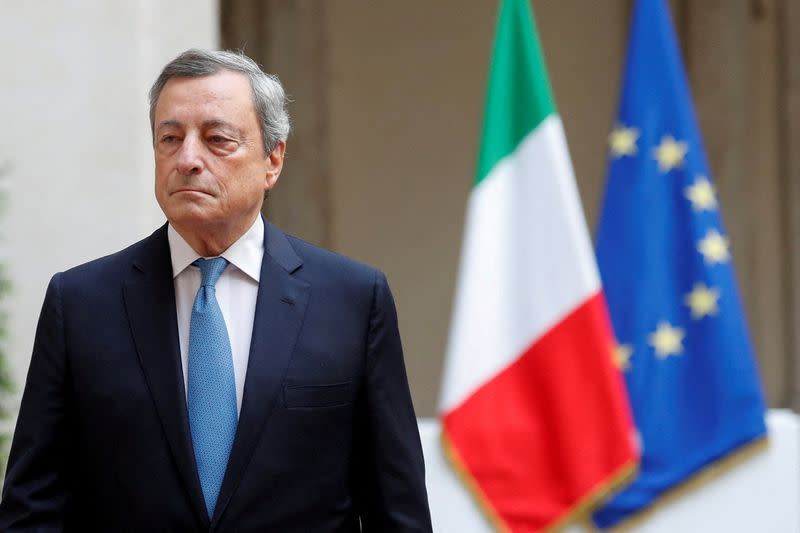Italy's constitutional court unravels Draghi's energy windfall tax

By Giuseppe Fonte
ROME (Reuters) -Italy's Constitutional Court ruled on Thursday that part of a 2022 windfall tax weighing on energy companies is unlawful, a decision that is expected to have repercussions for Rome's strained public finances.
The ruling paves the way for firms to demand partial refunds and limits the scope for similar taxes in the future, although a Treasury source told Reuters it would not derail Italy's public finances, saying the impact would be "totally manageable."
In 2022, then-prime minister Mario Draghi introduced a one-off levy that allowed the Treasury to collect 2.8 billion euros ($3 billion), despite criticism and refusals to pay from numerous companies.
Under the scheme, companies should have paid a 25% rate of a value based on operations subject to VAT sales tax. The tax take was used to fund relief measures for families and businesses affected by high energy costs triggered by the Russian invasion of Ukraine.
But the levy was unlawful because it included excise duties in the tax base that companies were forced to use to calculate the sums to be paid, according to the ruling.
"The exceptionality of the moment and the temporary nature of the levy cannot be considered a justification for the introduction of any form of taxation," the Constitutional Court stated in its ruling.
Other people familiar with the matter said the impact on public finances may be limited because the Treasury will be able to offset the refunds with sums collected from companies that have still not paid the levy.
Companies that skipped payments had hoped the Court would eliminate the levy in full, as it did in 2015 with the so-called "Robin Hood" tax adopted in 2008 to rein in excessive profits from high oil prices.
Italy's 2023 budget deficit came in at 7.4% of GDP, the highest in the 27-nation European Union. The Treasury plans to bring the fiscal gap below the EU's 3% limit only in 2026.
The Court will also have to rule on the legitimacy of the energy windfall tax introduced by Prime Minister Giorgia Meloni for 2023 only, which raised almost 3.5 billion euros from 7,000 producers and sellers of electricity, gas and petrol products.
This levy had a rate equal to 50% of the part of 2022 corporate income that was at least 10% higher than the average income reported between 2018 and 2021.
($1 = 0.9350 euros)
(Reporting by Giuseppe Fonte; editing by Gavin Jones, Mark Heinrich and Keith Weir)

 Yahoo Finance
Yahoo Finance 